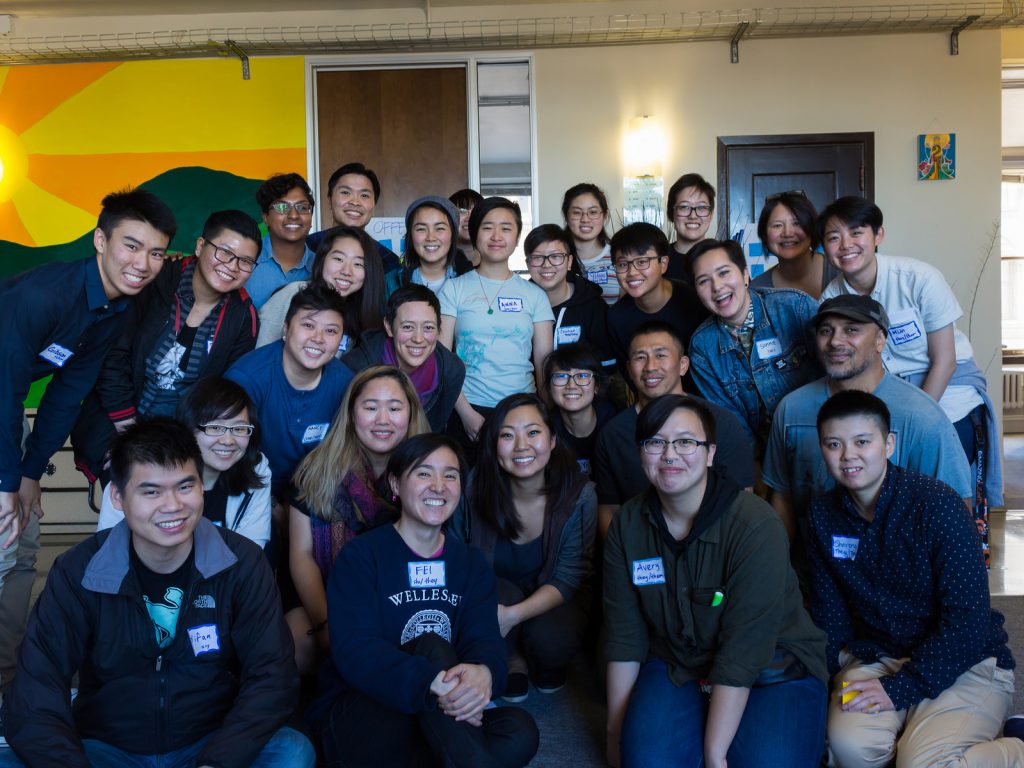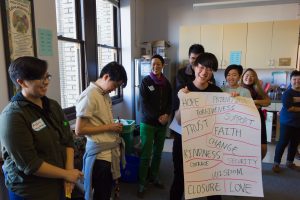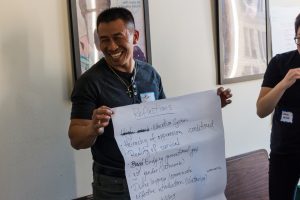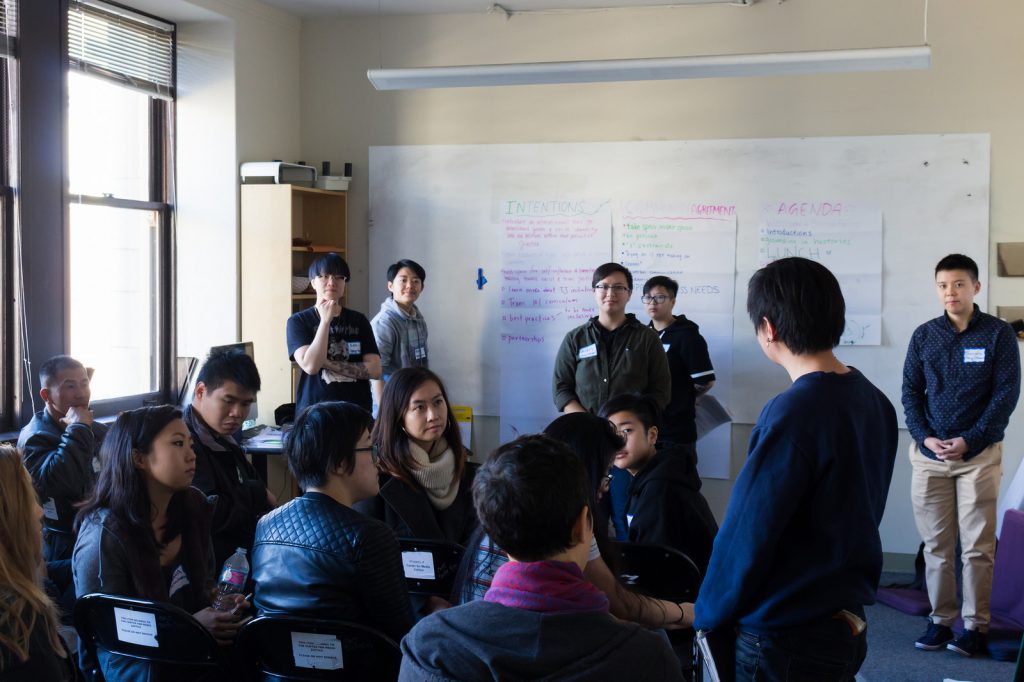Reflections from our February Trans Justice T4T

On February 11th, 2017, our Trans Justice Working Group facilitated APIENC’s first T4T (Training for Trainers) in the Bay Area. With over 20 people from various Bay Area API organizations in the room, we covered a range of content from Gender Journeys to delving deeper into our non-binary hxstories in Asia, the Pacific Islands, and the US. Everyone brought such presence, knowledge, experiences and joyous energy to the space.
Since Spring 2016, the APIENC Trans Justice Working Group has been regularly convening to develop our Trans Justice curriculum and coordinate various trainings planned for 2017. Sam Lai, a Trans Justice Working Group and Core Committee member, shared their reflections as a facilitator:

“Coming into the Training for Trainers as a first-time facilitator, I felt both nervous and excited. On one hand, I was excited to meet other trans and non-binary Asian folks, and on the other, I was nervous about speaking with allies since I haven’t had much experience working with them. I saw T4T as both a challenge and learning opportunity for me to go beyond my comfort zone and sharpen my understanding of colonization in different API cultures. Working with the members of the Trans Justice Initiative on T4T was also an opportunity for me to get back into grassroots organizing and community building, and I enjoyed the preparation as well as the day-of activities. I hoped to engage both trans-identified folks and allies in reflecting on their lived experiences in a collective effort to understand each other’s role in trans justice.

What I’ve come to appreciate from working in smaller groups is the intimacy and vulnerability that builds as conversations flow. Particularly memorable moments include: speaking with a fellow Taiwanese American on trans and asexual identities; a member of the Asian Prisoner Support Committee sharing his experience taking on roles of a mother and father for his siblings; the icebreaker during which people are supposed to look at each other without making eye contact; the care taken by small groups during the activity on community safety.
For me, trans justice means affirming and respecting the humanity of every trans and gender non-conforming person. As a queer and genderqueer Taiwanese American, my commitment to trans justice aligns with my commitment to racial justice: recognizing that there have been and still are trans people of color in every movement, that their contributions make liberation more possible. Much of my experience in the trans community has been with people of color of different ages, which I deeply value, and I’m so grateful to grow with allies as well.”


